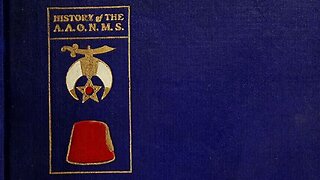Premium Only Content

The Anti-Christ by Friedrich Nietzsche
This book is a blistering critique of Christianity, morality, and the values of Western civilization. Written in 1888 but published posthumously in 1895, the book attacks the foundations of Christian doctrine, arguing that it promotes weakness, resentment, and a denial of life. Nietzsche contrasts Christian values with what he calls the "will to power", advocating for a philosophy that embraces strength, self-overcoming, and life-affirmation.
Throughout the work, Nietzsche condemns priests, theologians, and the Church, portraying them as corrupt forces that have twisted human nature by exalting suffering, meekness, and submission. He sees Jesus as a noble figure whose teachings were later distorted by Paul and the Church to create an oppressive moral system.
More than just an attack on religion, The Anti-Christ is a call for a revaluation of values, where humanity breaks free from what Nietzsche sees as the self-destructive chains of Christianity and embraces a bold, vitalistic approach to existence. Provocative and uncompromising, the book remains one of Nietzsche’s most controversial and powerful works.
About the Author:
Friedrich Nietzsche (1844–1900) was a German philosopher, cultural critic, and philologist known for his radical critiques of religion, morality, and modern society. Originally trained in classical philology, Nietzsche became a professor at the University of Basel at just 24 years old before leaving academia due to health issues. His philosophical writings challenge traditional values and introduce concepts such as the Übermensch (Overman), the Will to Power, and the Eternal Recurrence, which later influenced existentialism, nihilism, and postmodern thought.
Nietzsche was a fierce critic of Christianity, democracy, and herd morality, viewing them as obstacles to human greatness. His works, including Thus Spoke Zarathustra, Beyond Good and Evil, and The Anti-Christ, called for a revaluation of all values and a rejection of life-denying ideologies. Despite his profound impact, Nietzsche spent the final years of his life in mental and physical decline, with his sister, Elisabeth Förster-Nietzsche, later manipulating and misrepresenting his works for nationalist and Judenfeindlichkeit causes—distorting his philosophy beyond recognition.
Though controversial in his time, Nietzsche’s influence has only grown, shaping modern philosophy, psychology, and literature. His ideas remain as provocative and challenging today as when he first wrote them.
-
 1:30:58
1:30:58
Deus Meum Que Jus
3 days agoTHE Ancient Arabic Order of the Nobles of the Mystic Shrine FOR NORTH AMERICA
281 -
 LIVE
LIVE
Chad Prather
16 hours agoWhen God Shakes the Room: Bold Faith in a Fearful World
5,814 watching -
 LIVE
LIVE
Julie Green Ministries
1 hour agoLIVE WITH JULIE
15,105 watching -
 LIVE
LIVE
LFA TV
10 hours agoLIVE & BREAKING NEWS! | FRIDAY 11/21/25
3,337 watching -
 1:01:10
1:01:10
Crypto Power Hour
9 hours agoAnimus Bitcoin Technology
968 -
 LIVE
LIVE
Game On!
16 hours agoAnother FOOTBALL FRIDAY! Weekend Preview And BEST BETS!
333 watching -
 31:55
31:55
ZeeeMedia
17 hours agoHow Gold & Silver Fight Against Digital ID ft. Bill Armour | Daily Pulse Ep 148
4.05K8 -
 13:29
13:29
Clintonjaws
14 hours ago $10.64 earnedCNN Host Stops Show & Plays Surprise Clip Forcing Democrat To Correct Lie
19K8 -
 14:55
14:55
World2Briggs
17 hours ago $1.10 earnedThe 10 U.S. Cities Americans Can No Longer Afford — 2025 Edition
2.93K -
 8:19
8:19
Millionaire Mentor
16 hours agoATC Whistleblower EXPOSES Obama’s Dirty FAA Secret
4.38K5